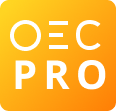Overview This page contains the latest trade data of Machinery to impregnate textiles, make linoleum, etc. In 2023, Machinery to impregnate textiles, make linoleum, etc were the world's 2043rd most traded product, with a total trade of $1.06B. Between 2022 and 2023 the exports of Machinery to impregnate textiles, make linoleum, etc decreased by -15.5%, from $1.26B to $1.06B. Trade in Machinery to impregnate textiles, make linoleum, etc represent 0.0047% of total world trade.
Machinery to impregnate textiles, make linoleum, etc are a part of Textile Processing Machines.
Exports In 2023 the top exporters of Machinery to impregnate textiles, make linoleum, etc were China ($222M), Italy ($200M), Germany ($188M), Turkey ($65.2M), and South Korea ($62.3M).
Imports In 2023 the top importers of Machinery to impregnate textiles, make linoleum, etc were China ($114M), India ($80.6M), Vietnam ($75.9M), United States ($70.2M), and Turkey ($66.3M).
Ranking Machinery to impregnate textiles, make linoleum, etc ranks 1360th in the Product Complexity Index (PCI).
Description Linoleum is a type of flooring made from a type of rubber called "linseed oil" which is mixed with linseed oil and cork dust. The mixture is then heated, mixed with powdered cork, and poured into a mold. The final product is then cut into pieces and pressed together to make the linoleum. Textiles can be impregnated by using machinery that heats up a liquid containing the dye and then injects the liquid into the fabric. The liquid soaks into the fabric and penetrates it.

